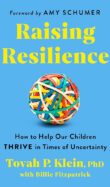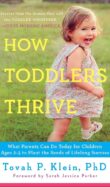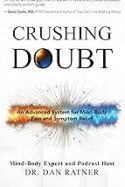An interesting discussion about the history of early learning in America, why Cleveland became a center of excellence for early childhood development, and what Sigmund Freud had to do with it.
EPISODES
BONUS REEL
A compilation of excerpts from “Let’s Rephrase That” – the popular segment of the podcast that explores more effective ways of talking with young children.
To learn more
Click the images to order Dr. Fletcher’s books from Amazon. Your purchase generates a small commission for non-profit Hanna Perkins Center.
A special episode on what children need, and how to talk with them, about the most recent school shooting or other gun violence. Featuring host Dr. Kimberly Bell in conversation with Hidden Language of Children producer Bob Rosenbaum.
To learn more
Click the images to order Dr. Tovah Klein’s books from Amazon. Your purchase generates a small commission for non-profit Hanna Perkins Center.
In the first episode of season 2, host Dr. Kimbelry Bell is joined by Dr. Tovah Klein, author of “How Toddlers Thrive” and “Raising Resilience” for a conversation about how parents can help children develop resilience to difficult moments, unwanted surprises and other adversities.
In a relevant departure from our usual early-childhood topics, we expand on the concept of “behavior as communication” in a conversation with Dr. Dan Ratner, author of Crushing Doubt (www.crushingdoubt.com), about the important role of the mind in managing chronic pain and discomfort.
Rique Sollisch, an early childhood consultant with Hanna Perkins Center, shares her noteworthy approach to talking with young children in a way that helps them undertand, discuss and gain mastery of their feelings.
BONUS REEL
A compilation of excerpts from “Let’s Rephrase That” – the popular segment of the podcast that explores more effective ways of talking with young children.
Laura Cyrocki, director of healthy meals and garden programs at Hanna Perkins School, discusses why gardening is such a fertile activity for developmental growth, and offers suggestions for getting young children started in the garden.
We talk with Training Director Pam Millar about the importance of a trusting and empathetic relationship between early learning teachers and parents. The discussion addresses why the relationship is so important, and what teachers and parents alike can do to make sure it’s working.
We talk with child psychoanalyst Margaret Zerba, Ph.D. about the challenges for children and parents alike during each of the developmental stages that all children experience: infancy, toddlerhood, school age and adolescence.
Social Worker Anita Eddie, MA, ATR, MSSA, LISW-S, discusses conscience development in young children from the perspective of their behaviors as they learn to listen to the voice of their “Inside Helper.”
Taryn Ponsky, M.A., LPCC, a psychotherapist and child development specialist, discusses separation anxiety in young children – where it comes from, how to deal with it, and how it differs from ordinary separation feelings.
Mom and professional photographer Kim Sable shares her experience with twins in an early learning program that emphasizes social-emotional development. It wasn’t always perfect, but it’s still paying benefits years later – to children and parents alike.
In follow-up to the discussion about normal development in episode 2, Debborah Paris, LISW, returns to address the question, “If normal is so messy and individualized, how do you know when things have gotten off track?”
Social worker/therapist Deborah Paris, LISW, discusses the two-steps-forward and one-step-back nature of healthy child development, and offers words of comfort for parents who worry about developmental timelines.
We talk with early childhood development expert Barbara Streeter about “the inner life of children”: The ideas and emotions they have, but without the life experience or vocabulary to understand them. So difficult thoughts get acted out through troubling behavior. As adults, we can’t offer the help and reassurance they need until we figure out what’s really behind the behavior.









